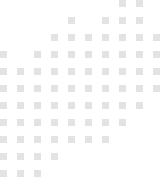

A Q&A with Charmaine Smith, Quantum Shorts finalist
Is there anything you would like readers to know about you, beyond the bio in your story?
At university, I was majoring in physics with the idea that I would get a doctorate in astrophysics. But I saw that path might not lead where I wanted to go, so I switched to mathematics at the last minute and got a degree in that instead. In childhood I was trained in classical music and began writing poetry. In the meantime, I’ve added exploring the mind through meditation, doing logic problems, and now writing short fiction to my passions. From this vantage, all of these activities—science, math, logic, music, poetry, fiction, and meditation—seem intertwined.
Congratulations on your first piece of short fiction! What can you tell us about how you wrote it?
Thank you! I was immediately excited by this contest and felt I could write something for it, so I put my subconscious to work. Soon the idea came for a mysterious job ad for an observer who has to work almost in isolation—and maybe sees no one but her boss—and the phrase “splendifying math”. That’s all I had. I sat down to write, so I could find out what happens next! It was like pulling on a piece of string to get more of the story, a few sentences at a time. I stayed up all night and wrote the first draft over several hours, then spent a few days editing and polishing over the next two weeks.
You imagine a new job in your story, one that makes the narrator feel like a goddess but has serious consequences. How did the idea come about?
It evolved naturally as I wrote. The narrator showed me her excitement but also the way the job affected her dreams. She embraced the job impulsively, partly out of need, but also liked the rush of confidence and mastery it gave her. Then I saw how she wasn’t fully prepared for the psychological (or maybe neurological) superposition she would experience and how that might bleed through into her daily life—as well as the possible unintended effects of her work. I have always felt we must pursue science and powerful new technologies with humility and wisdom, so that idea was in the back of my mind. Also, I thought the amplification of quantum-level observing might amplify other quantum effects onto the macro level for her and wanted to explore that.
Would you take the job as an Observer?
Yes, definitely. Not because of the power—I’m not ambitious—but it would appeal to my sense of adventure and curiosity too much not to! But I have good inner tools for handling unusual mental states and can rely on intuition. I think we are all Observers already, in a sense, and the science in the story just makes that more explicit.
What is your favourite science-inspired book?
I’ve devoured acres of science fiction, like Robert Heinlein’s later universe-hopping novels—those stand out as favourites. For nonfiction, Buddha’s Brain and Alan Lightman’s Probable Impossibilities.
What does being a Quantum Shorts finalist mean to you?
It’s very inspiring, and I’m so grateful, because it’s shown me that I can write short fiction in line with my interests and offer those imaginative worlds to others to enjoy.
Are you working on other projects now?
Yes, many other short stories—mostly speculative fiction and magical realism. The ideas started pouring out after this one. I have a sequel to this story halfway written, as I wanted to find out how the narrator deals with the questions implied at the story’s end; it’s not the end of the road for her by any means. I’ve written several new poems and I work on a desert travelogue-memoir sporadically.
Is there anything else you would like to tell us about you or your story?
I think consciousness is the big undiscovered country, and I love exploring how our subjective worlds interact with outer science, technology, and new environments. I also think science is on the Hero’s Journey to fulfil its best potential, as much as any person is. The imagination is very powerful, and science can be just as creative as fiction. That’s what I’d like people to take away from my story.